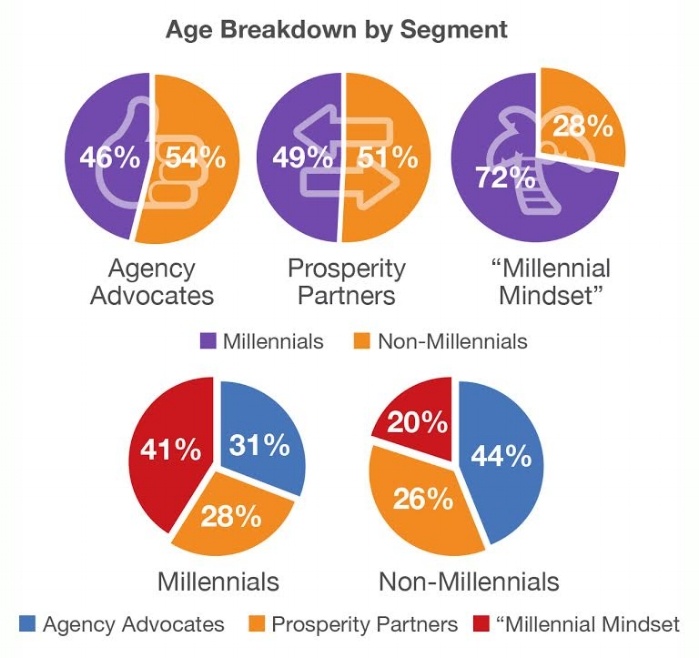
It goes without saying that employees are the lifeblood of any marketing agency.
They bring the talent needed to fulfill your agency's strategic and creative commitments to clients, and they represent the first line both in new business development and in client service and satisfaction.
They also -- of course -- represent the largest financial commitment in an agency's budget.
Attracting and retaining the best talent is high on the list of priorities for any agency owner. Leaders today faces complex decisions about how best to source, develop and reward the right mix of talents and temperaments to fit the agency's mission and its client base. 
Millennials, in particular, seem to be a particular source of heartburn for agency owners. These 18- to 34-year-olds represent the greatest source of new agency employees, and agency owners worry that they are ineffective at motivating these workers and concerned that their investment in their education and training will be for naught if they choose to move elsewhere prematurely.
The Research
Agency Management Institute and Audience Audit decided to tackle this question head-on, by surveying agency employees of all ages and gaining insight into their opinions, attitudes and influences, and the extent to which these differ between millennials and older employees -- or if there’s another explanation for the behavior that agency owners highlight in their complaints.
With the help of HubSpot and Research Now, the survey received over 950 responses from full-time agency employees. 55% of the respondents are millennials (under the age of 35). 40% are younger millennials (26 or younger) and the remaining 60% are 27-34.
45% are older employees -- about half of whom are 35-44.
In this article, we'll examine some of the key takeaways from the report. To read more about the survey and get a much deeper dive on the results, you can download the full research report here. You can also sign up for a free webinar (December 1st at 1 PM eastern) where we'll walk you through all of the results of the study and there will be a live Q&A.
Are Millennials Really Different?
56% of our respondents feel that millennials are fundamentally different than older employees when it comes to their priorities and attitudes about work. Both millennials and non-millennials feel similarly with regard to this question. 24% say they aren't sure.
But our research revealed that assumptions that lump all millennials into one set of attitudes are missing the real story.
The Real Story: Attitudinal Segments
While our research revealed some differences by age, we found much greater divides between agency employees when it comes to their attitudes about work, and what they expect of their employer -- and themselves.
The results were fascinating.
Segment 1: Agency Advocates (37% of respondents)
Agency Advocates love their jobs, feel respected and valued, and say they are appropriately compensated.
They believe their employers understand the needs of younger employees and are focused on keeping their employees happy at work.
They also feel their job provides lots of opportunities to learn important skills, which we know is the most important characteristic of a job for the respondent group overall.
They appear to place the responsibility for their career success largely on their own shoulders. They are less likely to feel that employers have an obligation to help their employees become more successful, or are responsible for helping employees build their own networks.
Segment 2: Prosperity Partners (31% of total)
Prosperity Partners feel employers and employees have a responsibility to help each other. They overwhelmingly agree that people should always be working to build their own brand beyond their current job, but also say that employers have an obligation to help their employees become more successful.
They believe employers should help their employees build social networks, should provide opportunities for employees to socialize and have fun, and should be active in their local communities.
They overwhelmingly believe the ability to collaborate and work in teams is a critical skill for everyone, but say they also need independence and flexibility to do their best work.
Despite the fact that these respondents overwhelmingly say they always give their best effort at work, they are less likely to feel that their compensation is appropriate given their responsibilities, experience and performance.
Segment 3: Millennial Mindset (32% of total)
The final segment, which we have termed the "Millennial Mindset", are much more likely than other respondents to feel that younger workers are both more talented and less valued than older employees.
They are more likely to credit younger workers with being more innovative than older workers, and better at understanding today’s marketing environment.
They also say that younger workers are typically undervalued and deserve more responsibility than they are typically given.
They are less likely to say they give they always give their best effort at work, and that employees have an obligation to help their employer become more successful.
They are much less likely to say that they feel valued, that they love their job and that it provides lots of opportunities for learning important skills.
Millennial Mindset respondents are more likely to see their jobs as just something they have to do for now, to earn money for the things they enjoy doing and to bide their time until they can do something they’d prefer.
The most striking finding about the “Millennial Mindset” segment is that they aren’t all millennials.

In fact, while there are many more millennials in this segment than there are older respondents, 28% are not millennials at all.
And 59% of the millennials in our study are NOT in the "Millennial Mindset" segment (hence the quotations around the segment name).
So while a millennial is more likely to be in this segment than are older respondents, they are still more likely to be either an Agency Advocate or a Prosperity Partner than a "Millennial Mindset" member.
For agency owners, the study offers both challenges and opportunities. It challenges many of the pre-conceived assumptions about agency employees, their attitudes and what matters most to them.
The research was very revealing about employees attitudes regarding compensation, their intentions to stay at their current agency or in the agency business, how they want to contribute and what they expect from their employers.
Implications
Think attitude, not age: It's easy to categorize employees by generation but this study is evidence that owners must be to stop thinking about employees in terms of age, and start thinking of them in terms of attitude.
Not only do they do the majority of millennials a disservice by painting them with the same negative brush, but they fail to recognize the number of older employers who may in fact have many of the attitudes the owners are hoping to avoid.
The stereotypes can get in the way of having meaningful conversations about the motivations, goals and concerns of each employee. They also can create resentment and a sense of being disrespected among employees that owners would like to nurture/keep.
from HubSpot Marketing Blog http://blog.hubspot.com/marketing/agency-millennials-data

No comments:
Post a Comment